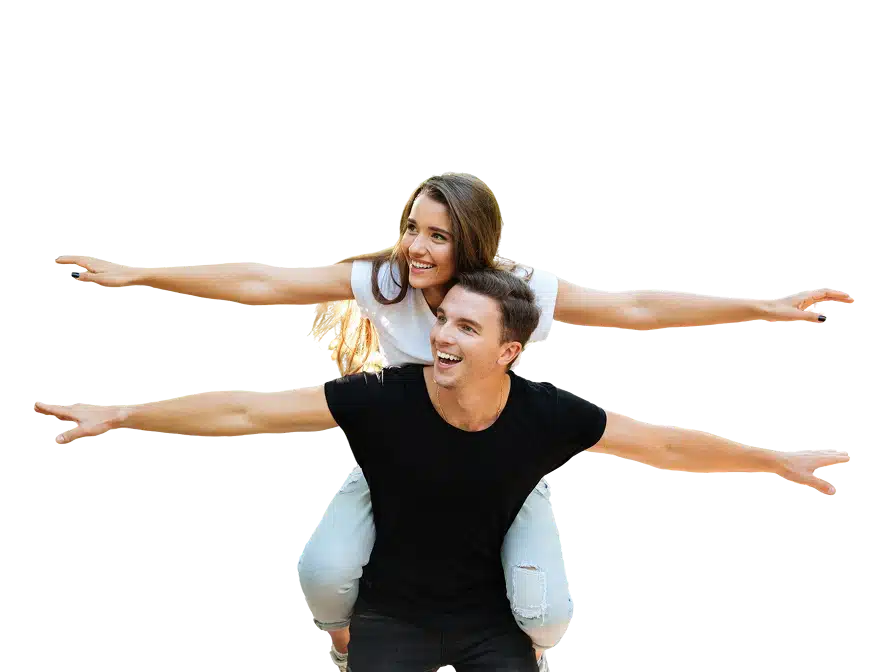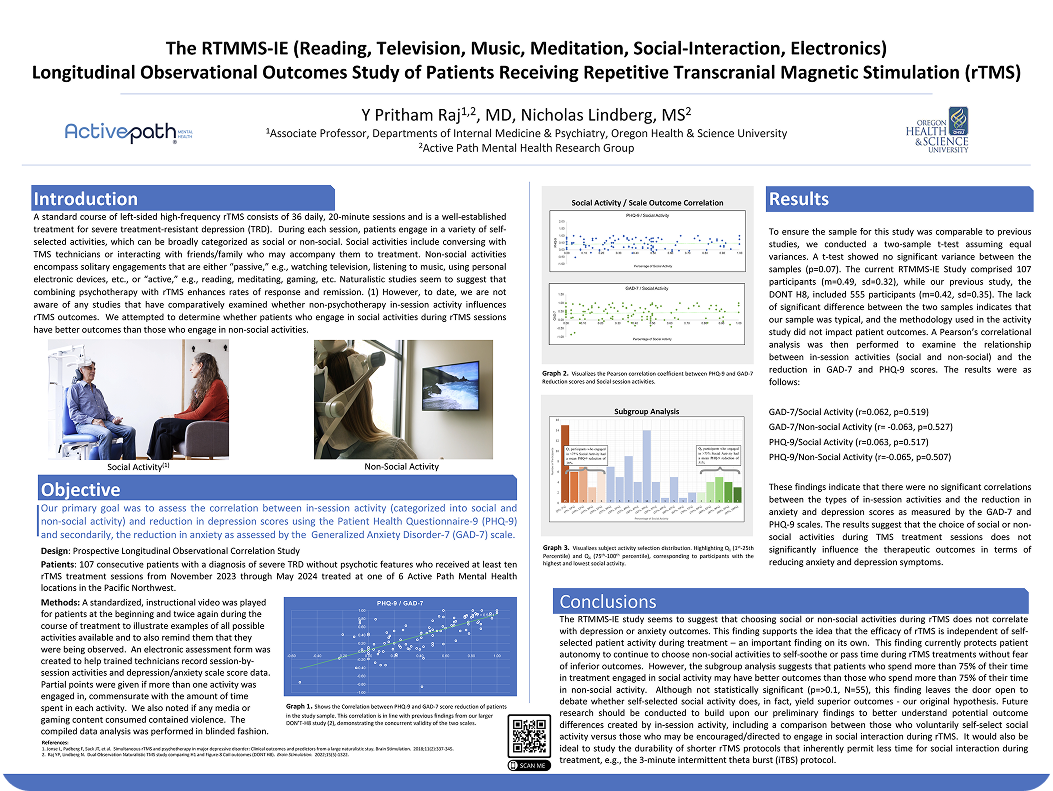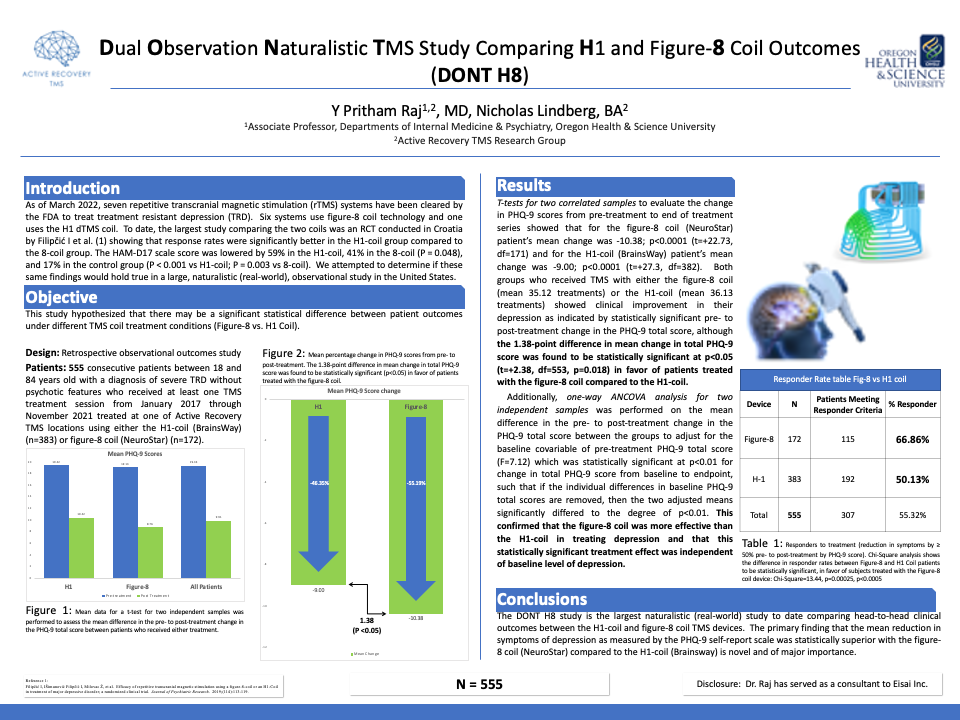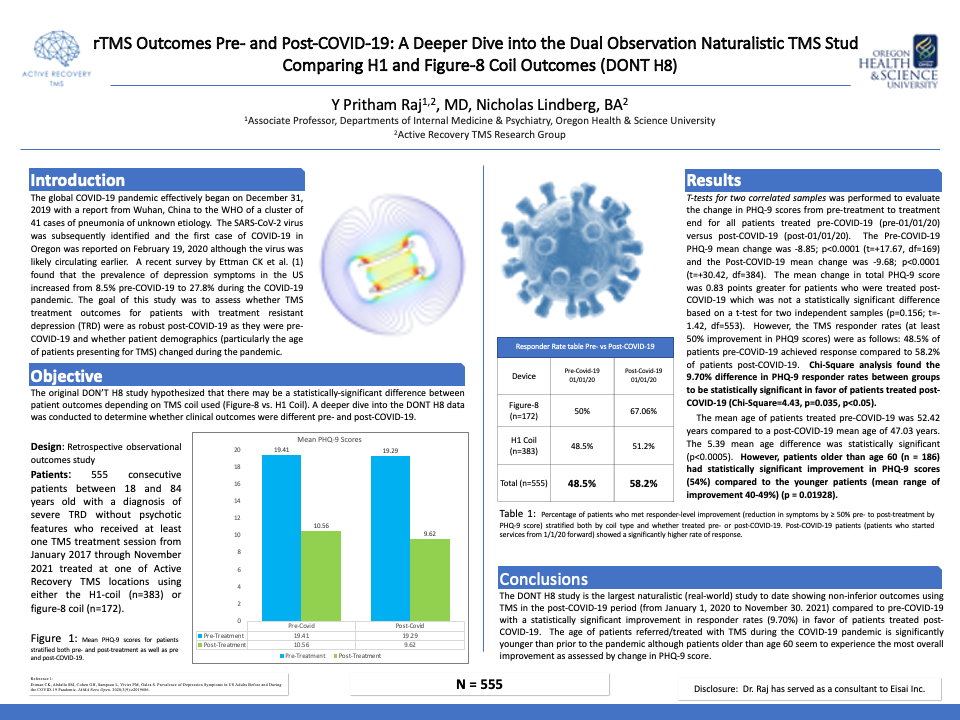Home / Our Research
Our Research
We don’t just provide treatments – we advance them. As a Northwest leader in TMS and SPRAVATO, our focus is better outcomes and broader access.
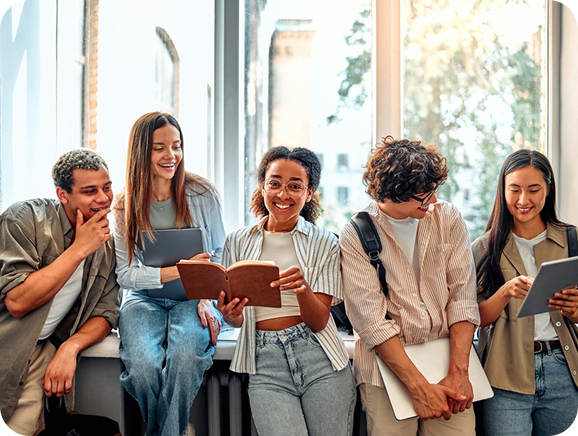
Where Science Supports Healing
Get the Facts Behind Your Care
ABSTRACT
2025 American Psychiatric Association Annual Meeting
The Reading, Television, Music, Meditation, Social Interaction, Electronics (RTMMS-IE) Longitudinal Observational Correlation Outcomes Study of Patients Receiving Repetitive Transcranial Magnetic Stimulation (rTMS)
Authors: Y Pritham Raj, MD¹²; Nicholas Lindberg, MS².
1 Associate Professor, Depts. of Internal Medicine & Psychiatry, Oregon Health & Science University, Portland, OR, USA; Chief Medical Officer, Active Path Mental Health
2 Active Path Mental Health Research Group
Background
A standard course of left-sided high-frequency rTMS consists of 36 daily 20-minute sessions and is a well-established treatment for severe treatment-resistant depression (TRD). During each session, patients engage in a variety of self-selected activities, which can be broadly categorized as social or non-social. To date, we are not aware of any studies that have examined whether the type of in-session activity influences rTMS outcomes. We attempted to determine whether patients who engage in social activities during rTMS sessions have better outcomes.
Methods
This was a prospective observational correlation outcomes study of 107 consecutive consenting patients between 18 and 80 years old (67 female, 40 male) with a diagnosis of severe TRD without psychotic features who received at least 10 rTMS treatment sessions (mean 32.2 sessions) from November 2023 through May 2024 using either an H1-coil (n=39) or figure-8 coil (n=68). The primary outcome measure was change in Patient Health Questionnaire-9 (PHQ-9) score at the end of treatment stratified according to observed in-session activity as recorded by trained TMS technicians. There was a session-by-session assessment of whether there was social interaction with the TMS technician (or other support individual(s) in the room) or engagement in non-social activities such as reading, watching television, listening to music, meditation, or the use of personal electronics.
Results
To ensure the sample in the RTMSS-IE study was comparable to our previous, large (n=555) DONT H8 study (1)—a top 4 project at the 10th Clinical TMS Society Annual Meeting—we conducted a two-sample t-test assuming equal variances between the two datasets. The t-test showed no significant variance between the samples (p=0.07), which also indicated that the methodology used in this study likely did not impact patient outcomes. The mean percent reduction in PHQ9 score for the cohort was 43.3 (sd=0.343). A Pearsons correlational analysis was then performed to examine the relationship between in-session activities (social and non-social) and reduction in PHQ-9 (and GAD-7) scores showing: PHQ-9/social activity (r=0.063, p=0.517), PHQ-9/non-social activity (r=-0.065, p=0.507), GAD-7/social activity (r=0.062, p=0.519), GAD-7/non-social activity (r= -0.063, p=0.527), all indicating no significant difference in outcomes between the groups. In a subgroup analysis, patients who spent >75% of sessions participating in social activity showed a 51% mean reduction in PHQ9 score compared to 38% for those spending > 75% in non-social activity (n=54, p=0.238, df=52, r=0.163).
Conclusions
The RTMMS-IE study suggests that choosing social or non-social activities during TMS treatment sessions does not correlate with depression outcomes. This suggests that the impact of rTMS is independent of self-selected patient activity during treatment, which is an important clinical finding. The subgroup analysis suggests that patients who spend more than 75% of their time in treatment engaged in social interaction may have better outcomes than those who spend more than 75% of their time in non-social interaction. Larger studies are needed to determine if such differences exist.
Posters
2025 American Psychiatric Association Annual Meeting & 2022 Clinical TMS Society Conference
